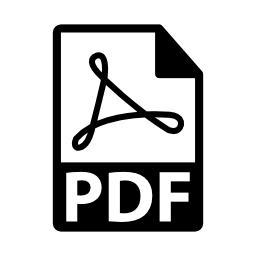April/May 2018 (vol. 14/6)
ContentsFeaturesNewsLegal
NewsResearch DigestResearch PlusCPD
 Personal Learning Zone in this issue
Personal Learning Zone in this issue
Summary:
FEATURED ARTICLES
This issue of Occupational Health [at Work] features a Personal Learning Zone (PLZ) article recommended for continuing professional development (CPD). The assignment questions, ‘Personal learning statement’ and ‘Certificate of engagement’ are available to subscribers at AWPcpd. These will also be stored in your password-protected PLZ. The PLZ will help you document your own CPD. Occupational health physicians and nurses, occupational hygienists and other professionals can use the resource in support of their specialism’s revalidation or CPD requirements..
Pages 31–37. Back in the GDPR
The EU General Data Protection Regulation (GDPR) comes into force on 25 May, along with the UK’s Data Protection Bill. The GDPR has far-reaching implications for occupational health: while building on current laws, it will mean an overhaul of data-protection procedures. OH records will be classified as ‘special category data’ and OH will need to establish a ‘lawful basis’ for their processing. Consent will not be a lawful basis for processing OH data, though it remains central to data handling, and must be ‘explicit’.
ADDITIONAL CPD
The following articles, news and research items are suggested reading for CPD and professional revalidation. Subscribers can complete their online Personal Learning Zone CPD record at AWPcpd.
Page 15-26. Research by The At Work Partnership and The Work Foundation has examined the biopsychosocial factors involved in triggering, prolonging and managing long-term sickness absence (LTSA). Part one highlights the importance of comorbid mental health and musculoskeletal conditions in contributing to LTSA, and of ensuring that organisational absence statistics are available to OH.
Page 27-30. Central to an effective biopsychosocial approach to managing back pain at work is that employees receive clear and consistent messages about recovery, not only from healthcare providers, but also from line managers, HR, their GP, family members and anyone else involved in their care.
Pages 12-14. An employer was not liable for disability discrimination because it did not know of an employee’s disability and had taken all reasonable steps to find out. The Court of Appeal decision in Donelien v Liberata UK Limited nevertheless underlines the importance of OH addressing each of the tests defined in s.6 of the Equality Act 2010 in assisting the employer in determining whether or not an employee is disabled.
Pages 38-41. Our compendium of recently published research includes evidence underpinning the importance of following established guidelines in carrying out workplace spirometry, why chronic health conditions may be limiting workforce participation by young people, and how perceptions of fairness at work may affect a person’s health, sickness absence and return to work.
Author: The At Work Partnership Ltd
Occupational Health at Work April/May 2018 (vol. 14/6) pp43


